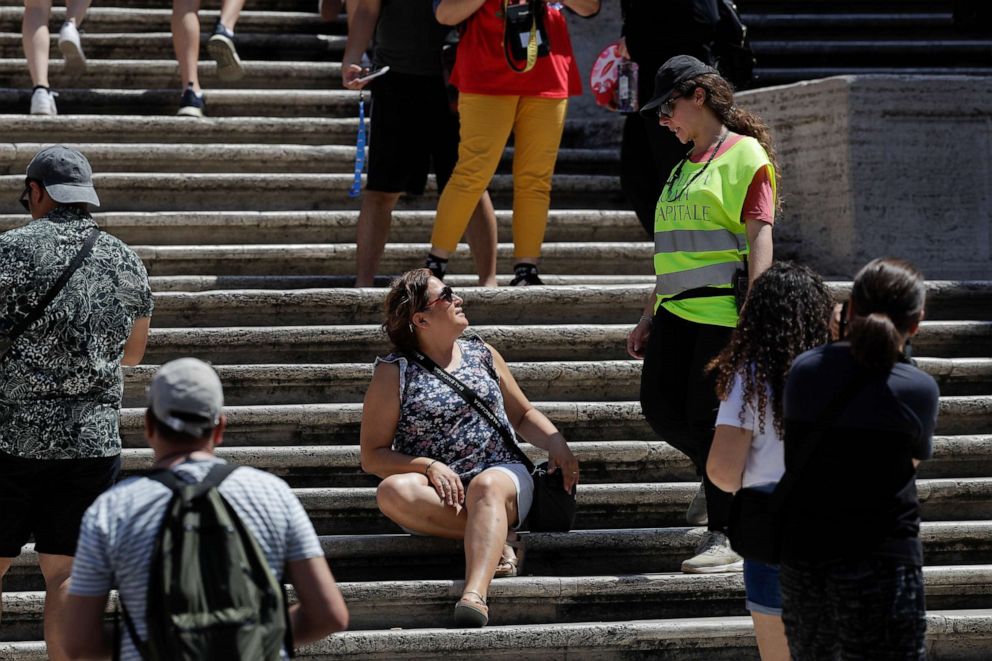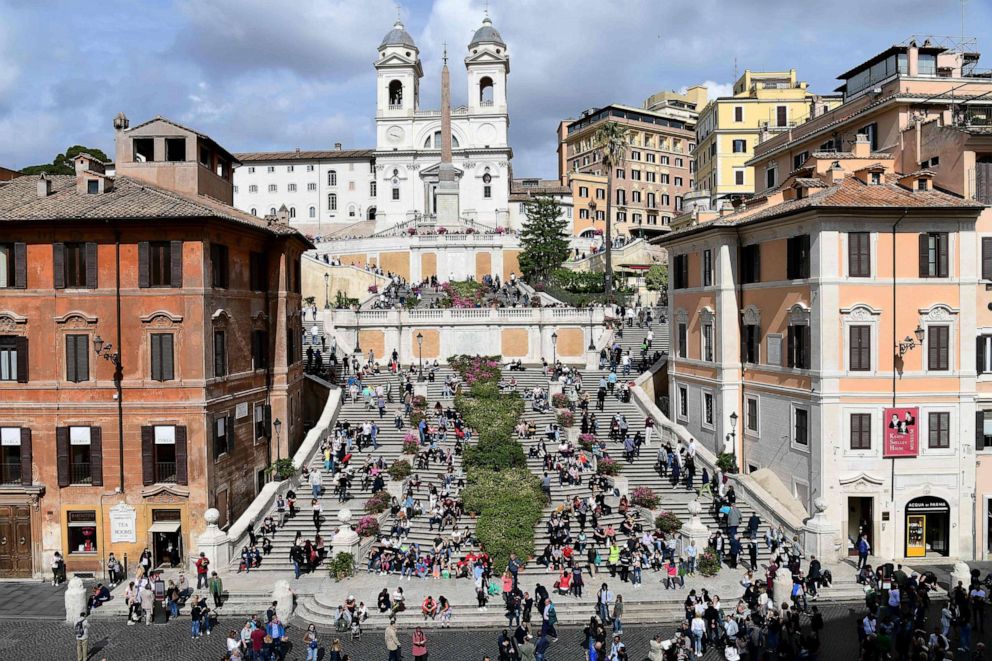Want to take a rest on Rome's iconic Spanish Steps? It's going to cost you.
The rules come in the midst of an especially hot summer.
People who stop to rest, roll a suitcase or otherwise loiter on Rome's 18th-century Spanish Steps could now face fines of up to $448.
Police have been patrolling the iconic World Heritage site, and blowing their whistles at anyone who takes a seat, since Tuesday, local media reported. According to the Guardian newspaper, the new penalties are part of a larger crackdown announced earlier this summer that also includes bans on jumping into fountains, appearing bare-chested and "messy eating" in the vicinity of historic sites.
The 136-step marble staircase spans an iconic fountain at its base and the Trinita dei Monti church at the top, and is both a UNESCO World Heritage Site and among Rome’s most popular tourist sites.

During the summer and especially at sunset, the Spanish Steps are often crowded with people taking a rest from the heat, and the site has undergone several refurbishments to tackle wear from its heavy foot traffic. In 2016 a $1.68 million restoration was funded by luxury Italian jeweler Bvlgari.
The new rules come as Italy, along with much of Europe, has been been in the throes of a summer heat wave. In late June, the Italian Health Ministry issued high-temperature alerts for multiple cities, including Rome, the AP reported, while Rome opened air-conditioned sports centers to people at risk, whill across Europe people have gravitated to public fountains -- most notably in Paris, where locals and tourists alike sought relief in the fountains in front of the Eiffel Tower.

Like many historic cities, Rome must contend with both the vast number of visitors and the pressure that the tourism industry brings to its ancient and iconic sites.
Some 94 million tourists travel to Italy per year, according to recent figures (https://www.repubblica.it/viaggi/2019/07/18/news/turismo_presenze_italia_duemiladiciotto-231479887/). Venice, another popular destination for visitors to Italy, has also sought to push back against over-tourism: in 2016, residents staged a protest and blocked cruise ships from docking at its port.
Last November, Rome's mayor introduced restrictions on public behavior, including fines for bathing in public fountains, camping, dropping litter or consuming beverages at certain hours at historic sites.




